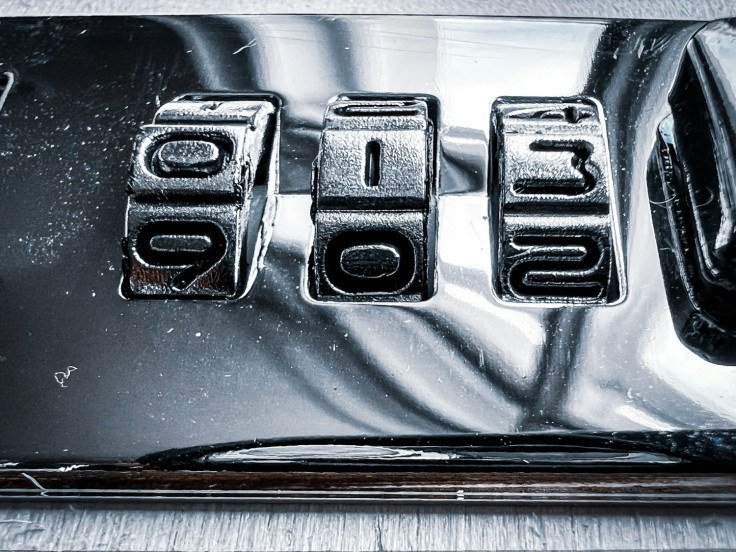On top of spotting fake phones, there's a need to secure strong passwords for your device.
Just like computers, smartphones do carry their share of security flaws, and Android or any iOS phone is no exception to those hackers throwing cyber attacks. How do you protect your device from those hackers or malware? There are six essential tips every phone owner needs to know.
Android's Security Struggles: What You Need to Know

The reputation of Android in security terms has not been the best. Kaspersky's 2017 findings revealed that there's an Android version of Pegasus called Chrysaor.
More alarmingly, Android-based web browsers leaked the confidential data of more than five million users in December 2022. Month after month, Android's monthly bulletins point out a new vulnerability with its users falling victim to sneaky malware-there's an application installation without their consent.
Androids' issue is its diversity of devices. With so many different chipsets and software versions, no manufacturer of phones can be locked down equally. Of course, creating a strong password is always a must. Don't forget that.
iOS vs. Android: Which Is Really Safer?
While people say that iPhones are much more secure, no phone is untouchable. The iOS system of Apple is not totally immune to weaknesses; for instance, the Spectre vulnerability crippled many of its Android users.
In 2018 alone, Sophos Labs reported that ransomware attacks were targeting over 30% of the victims. As of 2022, malware apps flooded into the Google Play Store and stole sensitive user information that Dr. Web antivirus detected.
With threats on the rise, here's how you can level up your phone's security game.
Lock It Down and Create
Don't sleep on phone locks-it's your first line of defense. Today's phones make locking easy with options like PINs, fingerprints, and Face ID. To stay extra secure, use a complex alphanumeric PIN and set your phone to auto-lock after just a few minutes of inactivity.
Face ID and fingerprint locks might be slick, but not nearly as secure as a PIN code. Also, iPhones can be programmed to wipe all data after 10 failed passcode attempts, so hackers have no hope.
Update Your Software
Software updates might be frustrating, but they're more or less the lifeblood of keeping your smartphone secure. In December 2022, an alarming number of Android users are still on older versions of the OS. Even iPhone users will never stay updated with the latest iOS.
If this is what's happening on your Android device, then it's time you switch to something better. Brands like Google Pixel and Apple iPhones now provide long-term support through regular updates.
Stick to Known Brands
While purchasing a phone, one has to be sure of the brands delivering frequent security updates. The known brands that maintain updated security in most of their phones include Google Pixel and Apple's iPhone. Other manufacturers have been in the headlines lately, especially Huawei, over spying claims.
To avoid all these issues, the best option would just be to buy new gadgets and not bother with rooted or jailbroken phones. When a new phone is not an option, then get a certified refurbished phone from authentic dealers such as Amazon's "Renewed" program.
Encrypt Your Data
Data encryption is a must in case your phone is stolen or lost. Thankfully, if you have an iPhone or an Android operating system running Android 10 or higher, then your phone has already been encrypted. For older Android models, see how to enable it manually.
This way, even if anyone got hold of your phone, they would not be able to access your personal info without the proper PIN or password.
Deep Cleaning Like a Boss
Your smartphone can be home to malware-it's not limited to PCs alone. In Google PlayStore, over one million downloads of malware-ridden apps have been recorded before the company deleted them.
How to prevent this: you install an application from one of the trusted locations, say, such as App Store or Google Play.
Android users should not remove security features to download APK files from unknown locations. Using a mobile antivirus application is helpful.
Do Not Jailbreak or Root Your Phone
Jailbreaking iPhones and rooting Android devices is cool, but it lets malware in. In 2015, KeyRaider malware struck more than 225,000 jailbroken iPhones, while in 2017, CopyCat malware infected 14 million Android devices through rooted apps.
Moreover, persistent tampering with the OS of your cell phone will be a sure brick for it, and this will render it useless. For this reason, it is best to stick with the original OS to avoid unnecessary risks while keeping your cell phone safe and sound.
Take the Lead with Cyber Security Solutions
In today's world, phone security cannot be ignored anymore. Apply these six hacks in your life: lock your phone, update your OS, opt for genuine brands, activate encryption, perform malware scans, and avoid jailbreaks. Then, you will be sure to keep your gadget secure and avoid cyber creeps.
© Copyright 2025 Mobile & Apps, All rights reserved. Do not reproduce without permission.
















